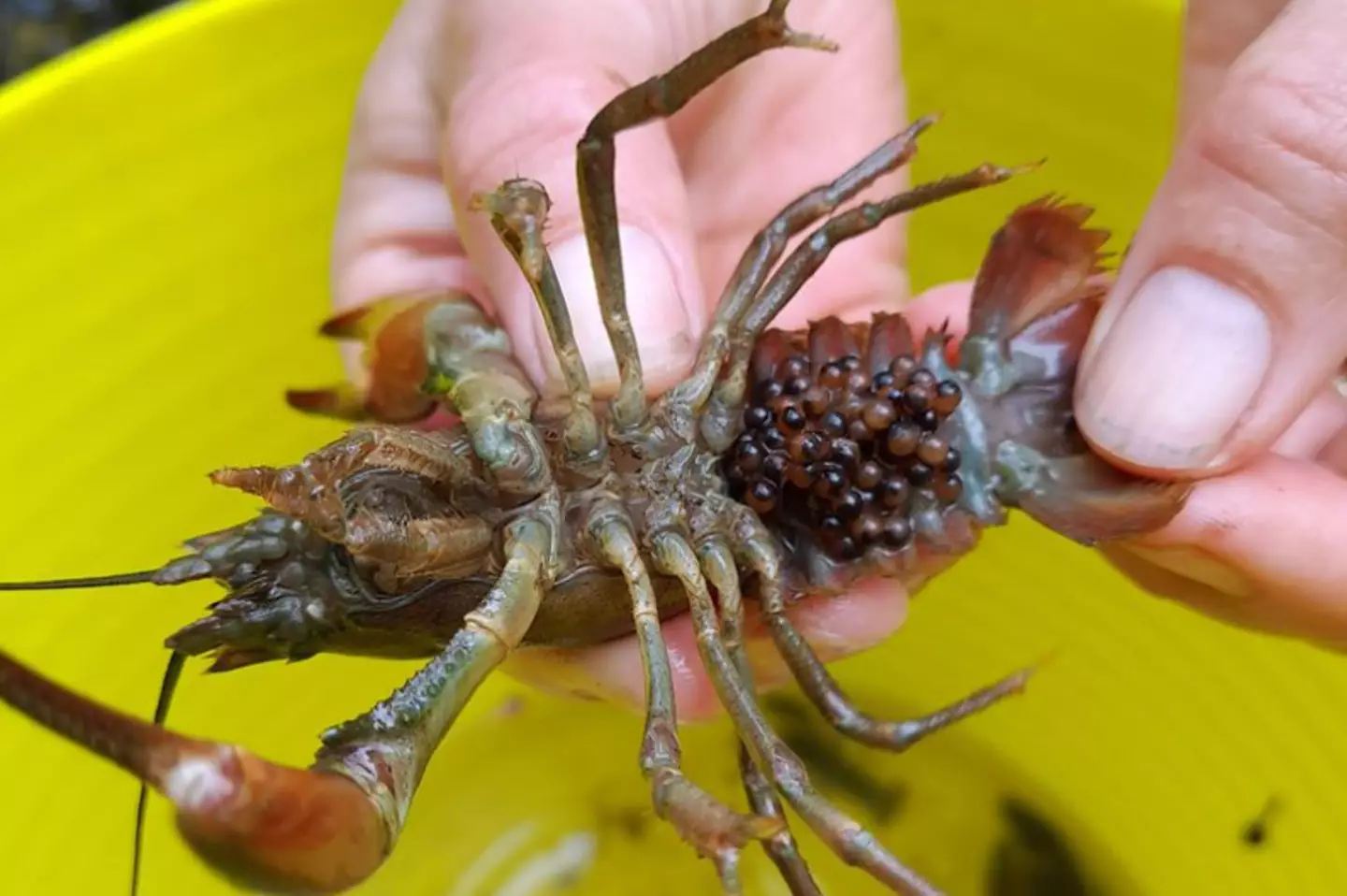
Living in the UK, I think it’s fair to say we assume there aren’t many particularly dangerous animals roaming about. Not including humans, anyway.
The idea of life-threatening creepy crawlies and creatures popping up in your back garden or local park seem more like an Australia thing than a British one.
But Brits are told to kill a certain creepy river creature ‘on sight’ by stabbing its brain.
Yeah, sounds a little crazy, I know, but that’s actually the advice.
Advert
If you happen to spot this American species of crayfish while you’re walking along or using a river than you should kill it straight away because of how deadly a threat it poses.
The miniature lobster has become increasingly common in UK waters, but due to their domineering size, menacing claws and healthy appetites they’re starting to wipe out their smaller, white-claw crayfish cousins.

Scientists previously predicted that about 90 percent of the species has gone.
While it might seem harsh, it’s apparently illegal to leave the American signal crayfish alive if you spot it. However, it’s vital you check it isn’t the endangered white-claw variety first before you start bludgeoning it to death.
Advert
Helen Carter-Emsell, a crayfish expert, previously told North Wales Live: “We realise not everyone will have a knife with them.
“The alternative is to squash them under a rock, though we recognise some people might find this unpleasant.”
The main way to differentiate the two is by the colour of their claws. Signal claws are red underneath with a white or blue blotch, whereas true to its name, white-claw crayfish claws are a lot paler.
To help stop contamination into other waters, Helen also advises that people should wash their shoes, dry their dogs, and clean their boats and fishing tackle before heading home. Signal crayfish can grow up to 12 inches long and females can carry up to 250 eggs.

Advert
According to the Mirror, the species was introduced to the UK from the US in the late 70s when crayfish plague had almost wiped out white-claw crayfish populations.
The plague doesn’t affect signals (although they can still be carriers of the disease) but it is deadly to white-claws.
But it’s not just the disease which is giving them their parasitic reputation. Signals also feast on fish eggs, burrow into river banks – often causing them to collapse – and even dine on white-claws.
In an attempt to stop them spreading, Carter-Emsell – who is Wellbeing Officer for the North Wales Resilient Ecosystems pilot project – asks that people don’t develop a taste for them too.
“We’d also encourage people not to develop a taste for crayfish and start creating their own food supplies in rivers, as this risks spreading signal crayfish to new areas,” she added.
Topics: Environment, Science, Animals